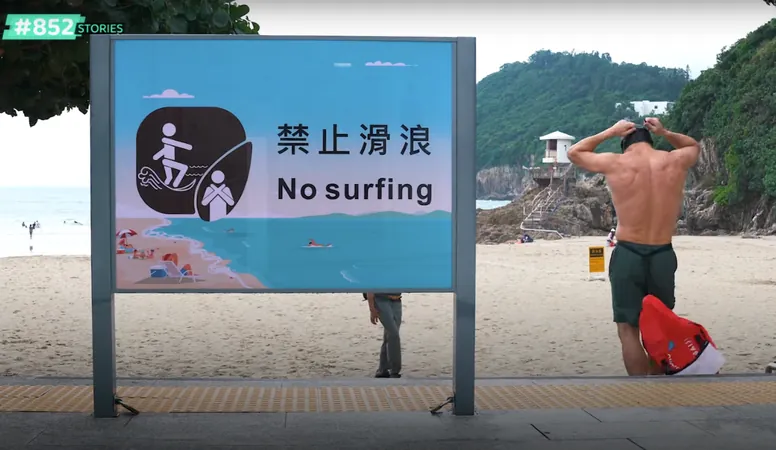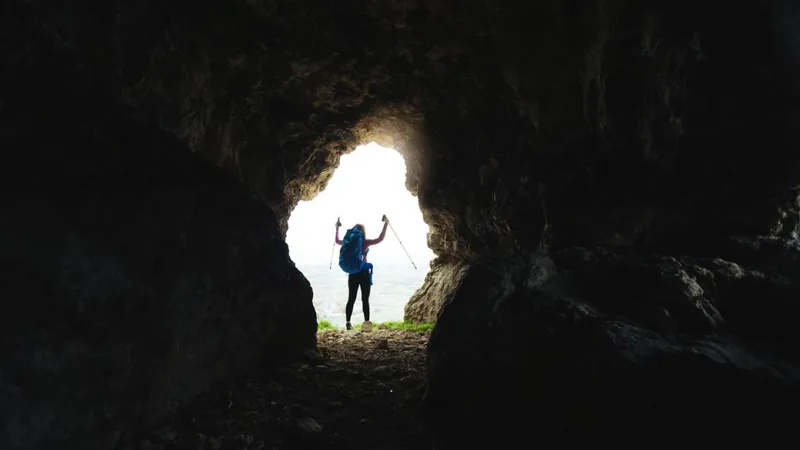
Hong Kong’s Surfing Ban: Authorities Stand Firm Amid Growing Discontent
2024-11-20
Author: Chun
Hong Kong's Surfing Ban: Authorities Stand Firm Amid Growing Discontent
Hong Kong's Culture, Sports and Tourism Bureau (CSTB) has made headlines recently for its unwavering stance on a longstanding surfing ban that affects all 42 public beaches across the region. According to Adrian Pedro Ho King-hong, a lawmaker with the New People’s Party, who has attempted to negotiate amendments to the ban, the CSTB has firmly stated that 'it will not budge.'
In discussions with the South China Morning Post, Ho revealed that officials expressed concerns about potential public complaints should they allow surfing on designated beaches. 'They told me they cannot open LCSD (Leisure and Cultural Services Department) beaches for surfing,' Ho reported, highlighting the disappointment of local surfers who have been seeking a feasible solution.
The ban, aimed at ensuring the safety of swimmers, has become a focal point of contention in light of intensified enforcement measures this year. Violations of the ban can lead to a hefty fine of up to HK $2,000 (approximately $260 USD) and even jail time of up to 14 days. Despite this strict enforcement, the LCSD Secretary for Security, Chris Tang Ping-keung, noted that there has been only a single prosecution for illegal watersports in the past three years.
An uptick in visibility of 'No Surfing' signs at Hong Kong's beaches has raised eyebrows, prompting various stakeholders—surfers, journalists, and lawmakers alike—to question why such measures are being enforced more stringently now. On October 25, two surfers faced scrutiny for allegedly surfing 'illegally' at Big Wave Bay, further igniting the debate surrounding the ban.
Lawmaker Ho was particularly hopeful that a dialog with the LCSD could lead to the possibility of designating specific beaches or time slots for surfing. He argued, 'With so many beaches in Hong Kong, surely there’s at least one where people would be more receptive?' Instead of a blanket prohibition, he suggested conducting a survey or feasibility study to assess the public's willingness to embrace surfing in a controlled manner.
However, the LCSD has remained noncommittal with their spokesperson repeating the current regulations that unequivocally prohibit surfboarding near designated swimming areas. This inflexible policy continues to frustrate both surfing enthusiasts and lawmakers advocating for change.
As the debate intensifies, questions abound: Can a compromise be reached that satisfies both surfers and the concerns of public safety? With voices calling for a reevaluation of outdated regulations, this issue is far from resolved. The surfing community and advocates await any sign of progress, while the government’s refusal to engage in constructive dialogue raises eyebrows and deepens challenges for local surfers eager to catch waves in their own backyard.
Stay tuned as we monitor this developing story, where the clash between tradition, public safety, and recreational freedom unfolds on the sands of Hong Kong's famed coastline!



 Brasil (PT)
Brasil (PT)
 Canada (EN)
Canada (EN)
 Chile (ES)
Chile (ES)
 España (ES)
España (ES)
 France (FR)
France (FR)
 Hong Kong (EN)
Hong Kong (EN)
 Italia (IT)
Italia (IT)
 日本 (JA)
日本 (JA)
 Magyarország (HU)
Magyarország (HU)
 Norge (NO)
Norge (NO)
 Polska (PL)
Polska (PL)
 Schweiz (DE)
Schweiz (DE)
 Singapore (EN)
Singapore (EN)
 Sverige (SV)
Sverige (SV)
 Suomi (FI)
Suomi (FI)
 Türkiye (TR)
Türkiye (TR)